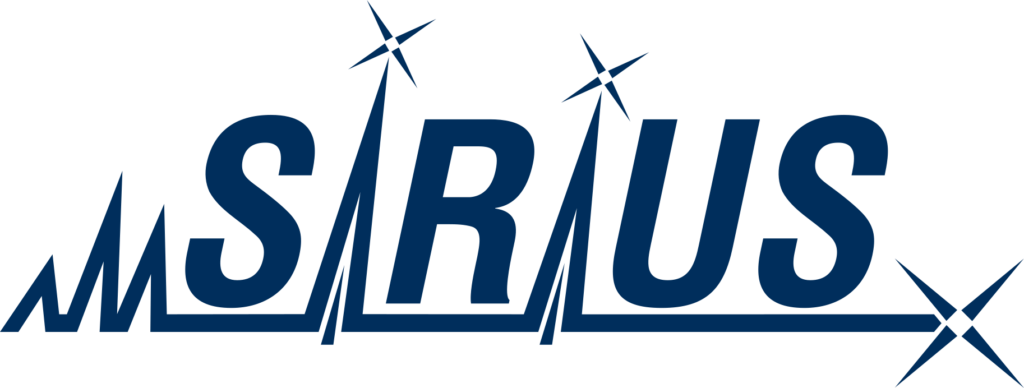Zur deutschen Version springen.
To date, many diseases remain without effective treatments, and the development of new drugs is a time- and money-consuming process. It typically begins with the search for new drug candidates that target specific receptors, with the aim of modulating their functions. These candidates are usually small molecules with diverse structures and favorable pharmacokinetic properties.
Drug candidates are usually discovered by systematically screening millions of molecules to test their affinity to a target receptor. Traditional screening workflows test potential compounds for functional activity in many individual experiments. The production, storage and testing of these molecules are associated with considerable financial, time and logistical challenges.
An alternative method is affinity selection, in which entire molecule libraries are examined in a single experiment. The challenge here is the subsequent identification of the bound drug molecules. DNA-encoded libraries use DNA barcodes to identify the molecules, but this can lead to unwanted interactions with the receptor.
Affinity selection mass spectrometry (AS-MS) is a barcode-free alternative for the screening of drug molecules. This method utilizes the binding interaction between a potential drug and the macromolecular receptor to isolate pharmacologically active compounds from a mixture of small molecules. The bound molecules are then analyzed by tandem mass spectrometry; however, their identification is extremely challenging, especially due to the low concentration of the bound molecules.
As part of this joint project, we are working with Prof. Böcker’s group (partner at FSU Jena) to develop robust computational methods to enable the identification of bioactive molecules. The aim of the project is to develop a seamless workflow for the identification of new bioactive small molecules from extensive synthetic molecule libraries. The developed methods will be combined in a user-friendly software that will reduce the process of searching for therapeutically relevant receptor binders from years to days.
The project is funded by the Free State of Thuringia (project no. 2023 VFE 0029), with funds from the European Union as part of the European Regional Development Fund (EFRE Thuringia) and from state funds.
Beschleunigte Wirkstoffentdeckung: Computergestützte Methoden für die Affinitätsselektions-Massenspektrometrie
Bis heute existieren für viele Krankheiten keine Medikamente und die Entwicklung neuer Medikamente ist ein oft Jahre dauernder und Milliarden von Euro verschlingender Prozess. In der Regel beginnt er mit der Suche nach neuen Wirkstoffkandidaten für einen bestimmten Rezeptor, dessen Funktion beeinflusst werden soll. Diese Wirkstoffkandidaten sind häufig kleine Moleküle, die vielfältige Strukturen und günstige pharmakokinetische Eigenschaften aufweisen.
Wirkstoffkandidaten werden üblicherweise durch systematisches Screening von Millionen von Molekülen entdeckt, bei dem deren Affinität zu einem Zielrezeptor getestet wird. Traditionelle Screening-Workflows untersuchen potentielle Wirkstoffe in vielen einzelnen Experimenten auf ihre funktionelle Aktivität. Die Herstellung, Lagerung und das Testen dieser Moleküle sind mit erheblichen finanziellen, zeitlichen und logistischen Herausforderungen verbunden.
Ein alternatives Verfahren ist die Affinitätsselektion, bei der ganze Molekülbibliotheken in einem einzigen Experiment untersucht werden. Die Herausforderung hierbei ist die anschließende Identifizierung der gebundenen Wirkstoff-Moleküle. DNA-kodierte Bibliotheken nutzen DNA-Barcodes zur Identifizierung der Moleküle, was jedoch zu ungewollten Wechselwirkungen mit dem Rezeptor führen kann.
Die Affinitätsselektions-Massenspektrometrie (AS-MS) ist eine Barcode-freie Alternative für das Screening von Wirkstoff-Molekülen. Diese Methode nutzt die Bindungswechselwirkung zwischen einem potentiellen Wirkstoff und dem makromolekularen Rezeptor, um pharmakologisch aktive Verbindungen aus einer Mischung kleiner Moleküle zu isolieren. Die gebundenen Moleküle werden anschließend mittels Tandem-Massenspektrometrie analysiert; ihre Identifizierung ist allerdings äußerst herausfordernd, insbesondere aufgrund der geringen Konzentration der gebundenen Moleküle.
Im Rahmen dieses Verbundprojekts entwickeln wir gemeinsam mit der Gruppe von Prof. Böcker (Verbundpartner FSU Jena) robuste informatische Methoden, um die Identifizierung bioaktiver Moleküle zu ermöglichen. Ziel des Projekts ist die Entwicklung eines nahtlosen Workflows zur Identifizierung neuer bioaktiver kleiner Moleküle aus umfangreichen synthetischen Molekülbibliotheken. Die entwickelten Methoden werden in einer benutzerfreundlichen Software zusammengeführt, die den Prozess der Suche nach therapeutisch relevanten Rezeptorbindern von Jahren auf Tage verkürzen soll.
Das Projekt wird durch den Freistaat Thüringen gefördert (Vorhabens-Nr. 2023 VFE 0029), aus Mitteln der Europäischen Union im Rahmen des Europäischen Fonds für regionale Entwicklung (EFRE- Programm 2021-2027 Thüringen) und aus Landesmitteln.





